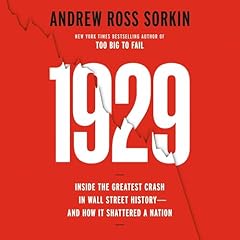
November 1918
The German Revolution
No se pudo agregar al carrito
Add to Cart failed.
Error al Agregar a Lista de Deseos.
Error al eliminar de la lista de deseos.
Error al añadir a tu biblioteca
Error al seguir el podcast
Error al dejar de seguir el podcast
 Exclusivo para miembros Prime: ¿Nuevo en Audible? Obtén 2 audiolibros gratis con tu prueba.
Exclusivo para miembros Prime: ¿Nuevo en Audible? Obtén 2 audiolibros gratis con tu prueba.Compra ahora por $20.56
-
Narrado por:
-
Michael Page
-
De:
-
Robert Gerwarth
The German Revolution of November 1918 is nowadays largely forgotten outside Germany. It is generally regarded as a failure even by those who have heard of it, a missed opportunity that paved the way for the rise of the Nazis and the catastrophe to come.
Robert Gerwarth argues here that to view the German Revolution in this way is a serious misjudgment. Not only did it bring down the authoritarian monarchy of the Hohenzollern, it also brought into being the first ever German democracy in an amazingly bloodless way.
Focusing on the dramatic events between the last months of the First World War in 1918 and Hitler's Munich Putsch of 1923, Robert Gerwarth illuminates the fundamental and deep-seated ways in which the November Revolution changed Germany. In doing so, he reminds us that, while it is easy with the benefit of hindsight to write off the 1918 Revolution as a "failure", this failure was not somehow preordained. In 1918, the fate of the German Revolution remained very much an open book.
©2020 Robert Gerwarth (P)2020 TantorLos oyentes también disfrutaron:




















Las personas que vieron esto también vieron:










Great book
Se ha producido un error. Vuelve a intentarlo dentro de unos minutos.
A weak defense of Weimar
Se ha producido un error. Vuelve a intentarlo dentro de unos minutos.
I thought that Gerwarth did a very good job of showing how the 1918 Revolution produced a government that was pretty much successful in dealing with the post-was years until the Great Depression overwhelmed most governments.
more info than I have seen elsewhere
Se ha producido un error. Vuelve a intentarlo dentro de unos minutos.
Fresh Historical Perspective
Se ha producido un error. Vuelve a intentarlo dentro de unos minutos.
Thought provoking and informative
Se ha producido un error. Vuelve a intentarlo dentro de unos minutos.


